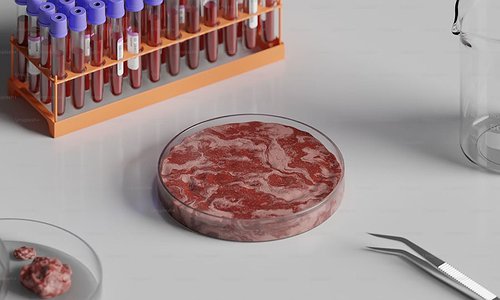The long-term effects of cocaine abuse
To really understand the gravity of cocaine addiction, we have to get real about its effects on the body. All drugs wreak havoc on an addict, but the long term effects, even after you’ve stopped using, can be truly devastating. No matter how many times you dabble in cocaine, it’s going to have an adverse effect on your body.
Even the shortest-lived high on cocaine can have lifelong consequences for your health. And there are no two ways about it, those consequences can be deadly. Not only will you quickly become addicted, but it alters the way your brain functions, which makes it all the harder to fight your addiction and find normalcy through sober living.
Here is the impact cocaine has on an addicts body, both short and long term:
The Long Term Effects of Cocaine Abuse
It changes the way your brain functions
Cocaine is as addictive as it is thanks to the intense high it brings, creating an excess of the neurotransmitter dopamine that creates that feeling of euphoria and confidence. This overload alters your neurochemistry, weakening the circuits responsible for joy and pleasure as your brain craves this dopamine reward.
This transformation makes it harder for the addict to experience happiness and pleasure naturally, and additionally, the neurocircuits involved in stress become increasingly more sensitive, raising your levels of displeasure and anxiety. This is what drives addicts to use, and soon enough the only way to feel normal at all is to use. The addict’s brain becomes dependant on cocaine to function, and natural stimulants for joy cease to make a difference, including family, friends, interests, and food.
With extended use and higher doses, addicts develop a full-blown psychosis, experiencing severe paranoia, panic attacks, hallucinations, restlessness, irritability and more. An addict is not in their right mind, and can even turn to murder to find their fix.
The damage inflicted on the brain also makes addicts susceptible to strokes, seizures, and brain damage. You’ll also permanently experience degradation in your cognitive abilities, resulting in memory loss, a lower attention span, and trouble with decision-making.
It severely damages your major organs
Cocaine damages many of the essential organs we need to function, most alarmingly the lungs, heart and cardiovascular system. When cocaine thins the blood, it causes a severe drop in blood pressure and causes your heart to beat fast and erratically. Even after use, an addict’s heart beats faster than it should, and the heart becomes damaged with inflammation. The heart loses the ability to contract sufficiently, and addicts will be prone to heart attacks, severe chest pain, and aortic ruptures.
Your gastrointestinal tract also suffers from cocaine addiction; with reduced blood flow to the digestive system, your intestines tear and develope ulcers. This results in a loss of appetite, leading to addicts appearing dangerously thin and malnourished.
The Short Term Effects of Cocaine Use
Cocaine doesn’t just affect you in the long run. As you’re using, your heart will beat erratically, and your brain function and muscle ability slow till even natural things like breathing become difficult. While high, you can experience:
* Chest pain
* Abdominal pain
* Muscle spasms
* Trouble Breathing
* Abdominal heart rhythm
* Dizziness
* Nausea
* Diarrhoea
* Paranoia
* Tremors
* Bloody nose
Even during first-time use, cocaine use can cause sudden death from seizure, stroke or cardiac arrest.
What does a Cocaine Overdose Look Like?
A cocaine overdose is a life-threatening situation, and if you suspect you or someone else experiencing an overdose, seek medical help immediately regardless of the situation. Here’s how to recognise an overdose when it occurs
The victim will have difficulty breathing, with shallow breaths or no breathing at all.
They’ll have difficulty focusing, and struggle to speak or keep their eyes open. They may even be unconscious. Their minds will be dangerously overstimulated
Their skin will turn blue or grey from lack of oxygen, and their lips and fingernails will darken from lack of blood flow. Their heart will beat dangerously fast and erratically. Their body temperature will spike alarmingly.
You’ll be able to hear snoring or gurgling noises coming from their throat.
If you find yourself in this situation, you can do your best to help the situation by trying to keep the person calm if they are still conscious, as you don’t want to aggravate their already strained heart with further stress. Keep reminding them to control their breathing and remain calm, encouraging them to keep trying to breathe deeply and regularly.
If they aren’t conscious, you can apply CPR, or press down on their chest and rub. Move them onto their side and keep them cool with ice packs and cold blankets to lower their body temperature. Don’t leave them alone until emergency medical help arrives.
The chaos drugs wreck on our bodies is nothing to be taken lightly, and even on the road to recovery, the effects of withdrawal are painful to bear.
These are the consequences of drug abuse, and if you suspect someone close to you is using, don’t hesitate to seek help and guidance. At Bethesda Recovery, we’re always prepared to answer any questions and provide the best possible advice for the way forward.
Editor: Anchen Coetzee / Africa InTouch News
Submitted by: MyPR



